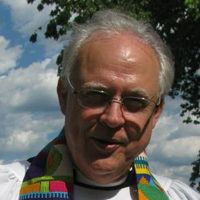Among the “wedge” issues with which the ultra-right attempts to divide the working class are the questions of (1) rights for gay, lesbian, bisexual and transgender people, including marriage or civil unions, access to benefits and health care, and (2) rights of women, including availability of birth control, the right to choose an abortion, and full and equal participation in economic and social life. These issues have frequently been raised in religious guise, and in this effort, the Bush administration has had the active collaboration of the leaders of the Religious Right, especially the Christian Right. They cite references from the Old Testament in which the Early Hebrews forbade homosexual acts. The same scriptures prohibit a wide range of sexual activity, forbid eating of various kinds of foods, divide animals into “clean” and “unclean” categories, forbid charging of interest on loans, recognize and govern the treatment of slaves by owners, etc. Also among these ancient Hebrew laws, though, are provisions for forgiveness of debts every seven years, releasing of people from prison and slavery, and restoration of family farmland lost in bankruptcy.
The Religious Right takes these ancient rules out of their historical context. They also choose only those that fit their purposes. The Christian Right doesn’t want to talk about cancellation of debts of the poor, or elimination of the capitalist banking system which has at its heart charging interest for use of its capital. They don’t want to talk about letting poor people out of prison, many of whom are there because of desperate economic conditions. And they certainly don’t want to talk about the New Testament references which clearly indicate that the early Christian Church for centuries practiced a form of communal ownership of property.
Most mainline Protestant denominations take the view that scriptures must be considered in their historical context, and that reason and science must also be considered. We no longer routinely stone people to death for adultery. We have abolished slavery. Most of us no longer believe that the sun, moon and stars rotate around the earth.
Religious progressives argue that their faith, although based in a historical tradition, is something which continues to develop. They argue that at the heart of the Judeo-Christian tradition is the story of the struggle of the Hebrew people for social and economic justice. The Bible is not a single book, rather a collection of books, prophesies and poetry written and edited by a host of largely unknown thinkers over several centuries. It includes accounts of dynasties, legislation adopted by Hebrew society, and military conquests of a people who believed they were divinely entitled to seize the land of others. But it also tells the story of a people who were freed from slavery, who from time to time were concerned with creating a more just society on this earth, and whose understanding of who they were and what God wanted them to do underwent considerable transformation over a thousand years of history.
And there are considerable contradictions among the books of the Bible. For example, provisions in Leviticus forbade homosexual activity, but in the First Book of Samuel the intimate relationship between David (who would become King) and Jonathan is not condemned. Likewise, although references to women in the Old and New Testament reflect their second-class status in pre-feudal society, it is also clear that at the heart of the teachings of Jesus was a radical inclusiveness. Gospel stories have Jesus welcoming into his immediate entourage a number of women, rebuking criticisms by male disciples. He is depicted as including women who were considered “untouchables,” including prostitutes and women from oppressed minorities and “unclean” ethnic groups. He is openly critical of the divorce laws of his day, which treated women solely as the property of their husbands, and advocated that women should be able to divorce their husbands on the same basis as men.
Religions and religious institutions are characterized by the same conservative and progressive, reactionary and radical, trends that can be found in the dialectics of social development as a whole. Just as the history of human society is the history of class struggle, that class struggle plays itself out not just at the point of production, but also in the cultural arena of which religious life is a major part.
Religious progressives recognize that their faith traditions have been used at times to enforce obedience to kings and emperors, to justify exploitation and enslavement of whole nations, and to suppress freedom of thought and scientific inquiry. But they can also lift up the great moments of national and human liberation, of the freeing of slaves, of throwing off the yokes of imperial powers, of breaking down artificial barriers between ethnic groups, and of striving for social and economic justice. Those elements are found in many of the faith traditions, including those of Judaism, Christianity and Islam.
Just as we have correctly stated that it is wrong to divide the American people into “red state” and “blue state” people, it would be wrong to think that the struggle against Bush is primarily a struggle of non-religious progressive people against conservative religious people. The majority of religious people, including many evangelicals and many who voted for Bush in 2004, do not endorse the overall agenda of the ultra-right. A growing sector of the religious population is part of the broader people’s movement on all questions. The struggle against the religious right will be carried out in no small measure by the religious center and left. As Marxists, we need to understand that struggle as part of the overall people’s movement. We need to find the ways to link the various struggles together, and to strengthen the unity of the peoples’ movement which is so critical to the future of our country and the world.
Tim Yeager (rtyeager@att.net) is financial secretary/treasurer of UAW Local 2320.









Comments